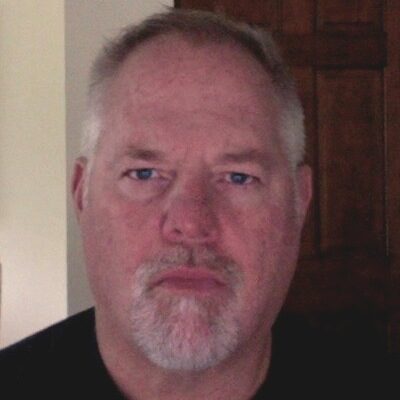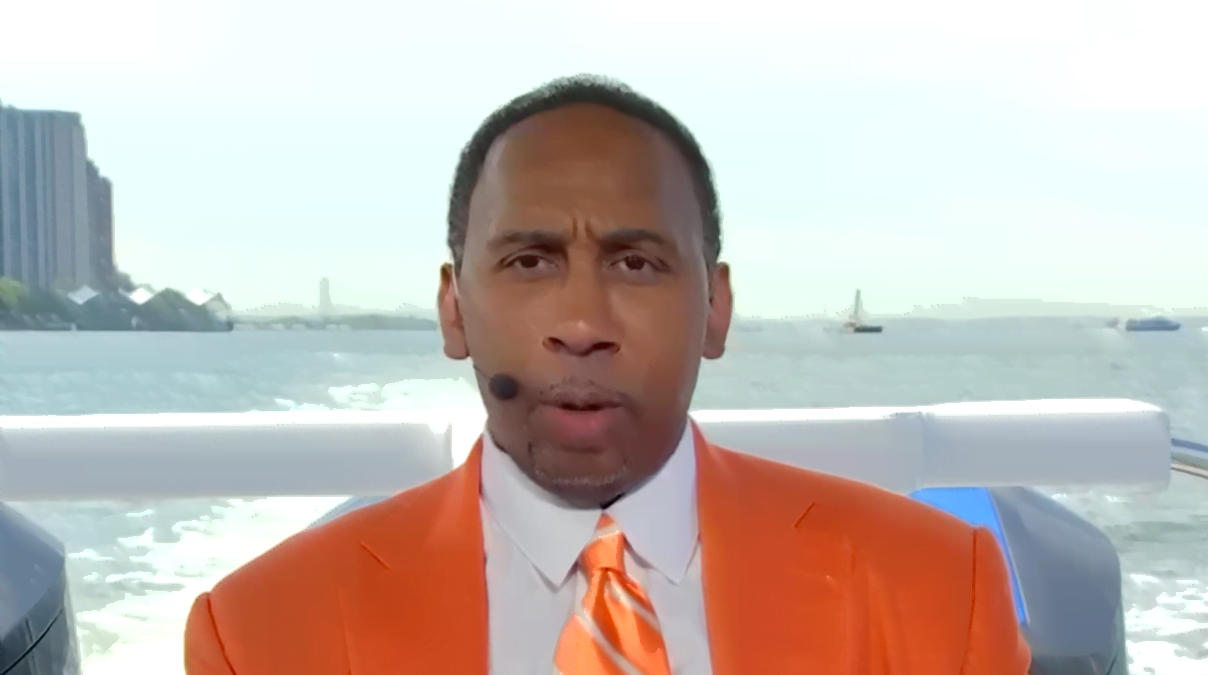I’ve had more jobs than Jack Swanson has had hot dinners. Unlike Swanson, I’ve been canned from a few. There’s always the job you loved, and sometimes you wish you could go back.
“I quit WLS and in many ways I regret it to this day,” Swanson said. “I quit every radio job I had, never fired. If today I could wave a magic wand I would have stayed at WLS in Chicago.”
Swanson worked at WLS from 1973-79. Swanson said it was a radio era that included Larry Lujack, Fred Winston, Tommy Edwards. Legendary personalities.
“One of the best collections of talent ever,” he said. “As my career went on, I was generally more successful than I was happy. I found I always performed better when I was around really crazy-talented people. I think you’ll always perform better on a great team.”
Swanson explained that just doesn’t happen today as great teams are very expensive.
He worked at KGO a total of three times. Every year he’d sit down with the GM and there was a ‘come to Jesus moment.’
“As PD, it was not uncommon to get a budget dropped in front of me and the GM would glare at me and say, ‘Do you have everything single thing in this budget you need to become number one?’ Now that’s a whole new kind of pressure.”
Reading between the lines, Swanson said what they were really saying was, ‘You’d better bring me a winner.’ To accomplish that, you always need a few dollars more. When you have the appropriate budget, you get better performance all around.
“From your on-air people, producers, and other staff. It’s a great environment when people feel appreciated. Like they’re being paid what they’re worth.”
The third time at KGO, Swanson quit after only three weeks.
“I just wanted out,” he explained. “I had a three-year contract so that complicated things. The nice people at Cumulus indicated they might sue me if I left. I figured, ‘Have at it. If you want to sue an old man, do your worst. The truth is I didn’t think they knew what they were doing. I had to negotiate a departure.”
Talking about KGO and their abrupt shift of formats, Swanson said he thinks ownership got desperate. “I don’t fault what they did. They were in a corner. Their money people were getting very edgy. But what fills that gap?”
Unfortunately, San Francisco currently has no local talk station despite being the fourth-largest radio market in the country. KSFO is also programmed, all syndicated.
“Tragically, it’s all radio from a computer,” Swanson said. “Radio is a crazy business. People don’t want to invest because they generally want to keep their money.”
He said all the time people say radio isn’t what it used to be.
“Not even close,” Swanson said. “It doesn’t mean I don’t honor and respect radio. You should let your talent shine wherever you can let it shine. Back in the day at WLS, it was possible to make money. It’s not really possible any more. It’s like 1,000 points of light. Anybody can go on Amazon and purchase a Mr. Microphone and have their own show and talk to the world.”
The fact that podcasts are the new popular kid on the block isn’t lost on Swanson. With 2.4 millions podcasts today and counting, Swanson said there are just too many, a sensory overload.
“They’re like exploding stars, scattering around and trying to find an audience,” he explained. “There are only so many hours in a day.”
His resume is extensive; VP and general manager at KING AM/FM, VP of programming at KGO/KSFO, director of news and programming at KCBS Radio.
Swanson began his radio career as a news anchor and reporter for WLS Radio in Chicago before becoming the News and Program Director for KGO.
“While I was at WLS, it was owned by ABC, and we had 25 full-time new people.”
He is the recipient of numerous awards including the best radio program director in America, and the best news talk PD for four years and the best programmer for three years by Radio Ink and Radio & Records.
Having spent most of his time in major markets, Swanson has great respect for people who spent their careers in small, or medium markets.
“If you’re on the endless chase to be in a bigger market, when you get there it can be hollow. If you find a city and community you like, it can become a great home forever. There aren’t any gold watches in radio. My advice to talent is to listen to your stomach. There’s nothing more important.”
Some people are naturally good at what they do, but a PD can only take you so far.
“It’s like being a football coach,” Swanson said. “You can’t make your quarterback a star, he has to do that himself. My career has been satisfying. I’d say it has been 85-90 percent luck. Being in the right place at the right time. That’s absolutely true for my career.”
He’s had great success in radio. But now, things are different.
“I definitely wouldn’t encourage young people to get in the business or pursue a journalism curriculum,” Swanson said. “Years ago, I had a group of students come into KCBS, journalism students from the University of California. About 13 kids came in and said they wanted to see the real world of broadcast journalism. They asked me for advice and I told them if they were intent on the degree, for God’s sake don’t go on for a masters in journalism. One of the students told me they were all in the masters program. I don’t want to say we’re dumb in radio, but we’re not the smartest people.”
When KGO was part of the ABC group, and ABC was sold to Disney. Swanson was stunned. They sold all the stations for a great deal of money.
“I asked why they were doing it? This was 20 years ago. An executive at ABC told me radio had no growth potential and that’s what they wanted. They took all the money from the sale, billions of dollars, and put it into Pixar. While I was angry at Disney, they saw the writing on the wall.”
In 1994, Swanson was to program KSFO. He’d done that once and didn’t want to go back.
“KSFO was a dog, but the essentially offered me a blank check to fix it. So I went back. Within a year I took the station from 36th in the market to number two, just behind KGO.”
Swanson said they went all conservative at KSFO. This was before the Fox News Channel. Limbaugh existed, but there were no all conservative stations with the exception of one in Seattle.
“There were mostly religious stations with conservative hosts, but nobody was listening,” Swanson said. “They waved the flag and I personally didn’t know people like that. Suddenly there was a need to provide a place where people could say what they never dared to say out loud.”
Anybody in the business will tell you the line between journalist and opinion is evaporating. “They are broadcasting information that we want to hear to make us feel right about our beliefs,” Swanson said. “People may not believe when someone tells them they love them, but they always believe them when they say they’re right.”
He said when he went to school, students tried to find the truth as best they could understand it. Swanson said he’s not so sure that can happen anymore.
“When I started in news, I had an AP and UPI teletype in my station,” he explained. “I knew everything that was going on and listeners didn’t know any breaking news. We had no morning news, no news channels, newspapers came out twice a day. Radio was the only way to learn immediate things. What a responsibility it was.”
Swanson said the most important things politicians can do today is listen. He explained they stopped listening a couple of years into their careers.
“They no longer hear their constituents. They just say what their base wants them to say.”
Does he have an encounter with someone that he holds dear? Not really.
“I did encounter Richard Nixon once,” Swanson said. This was during the heat of Watergate and Nixon was in Madison.
“The President was walking toward Air Force One and the national press was all over him,” Swanson said. “With Watergate crushing him, He wasn’t about to talk with anybody. I was behind the press line and I yelled out, ‘Mr. President, your tan looks great. Where did you go to get it?”
Swanson said Nixon stopped, pivoted and looked his way.
“Nixon turned around and came toward the press line and we chatted a bit. I think he just liked the fact that someone wanted to talk with him as a human being.”
For a moment, Nixon wasn’t such a Tricky Dick.

Jim Cryns writes features for Barrett News Media. He has spent time in radio as a reporter for WTMJ, and has served as an author and former writer for the Milwaukee Brewers. To touch base or pick up a copy of his new book: Talk To Me – Profiles on News Talkers and Media Leaders From Top 50 Markets, log on to Amazon or shoot Jim an email at jimcryns3_zhd@indeedemail.com.








